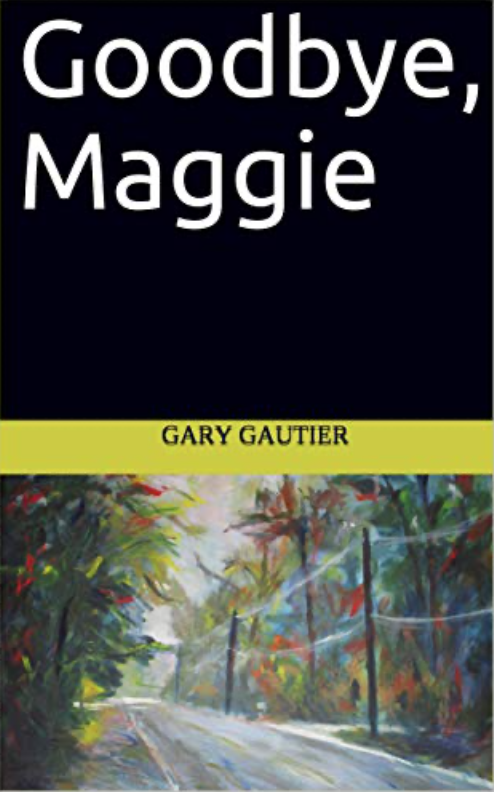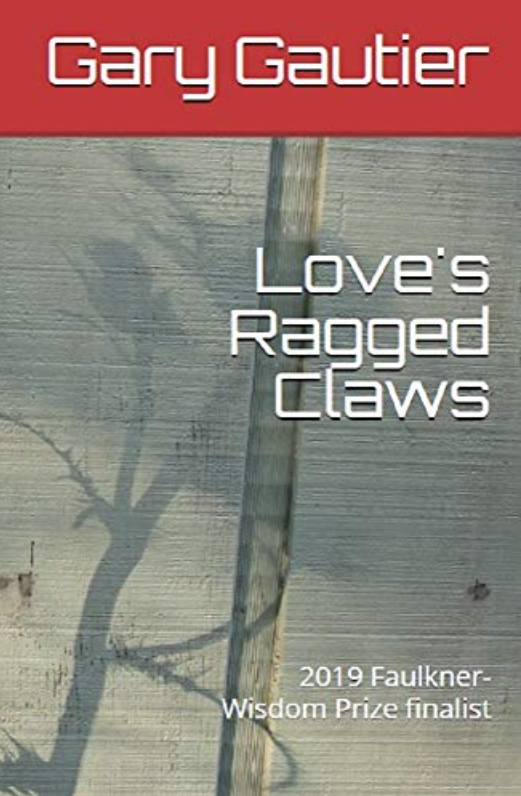
Listen, subscribe, and share Happiness Between Tails Podcast on most any platform, from Spotify and Apple Podcasts and Google Podcasts and Breaker, to Pocket Casts and RadioPublic and Castbox and Stitcher, plus many more and an RSS feed. The full list of 50+ places is H-E-R-E.
Yay! Finally, the first video/audio chapter to my novel, Flamenco & the Sitting Cat, is on Youtube. You can’t see it, though, because it’s set to ‘private.’ Rather than public consumption, it’s meant to entice potential agents. If you’re dying to see it, however, email me and I’ll send you a special link.
You might already know that countless drafts earlier, I pitched it to 70 — or was it 90? — literary agents and publishers. The few who bothered to answer declined, so I resolved to build a following of blog readers who would be interested when I would self publish. The longer I experiment though, the clearer it appears that self publishing best suits factual books, narrow-genre fiction, and celebrity authors.
So for the moment, I’m searching for great agent representation. Writers don’t need videos, but I produced one to help show how easily Flamenco & the Sitting Can be serialized, podcast, filmed, and whatever else. My synopsis is finished. Next is finessing the pitch letter. Then I’ll set a deadline for how long I’ll pitch in earnest. If no one bites this time around, I’ll self publish while continuing to send out letters.
Agent guidelines for submissions often ask for what genre one’s novel falls into. My book involves a love story, but calling it romance used to make me cringe. Forgive me if you love romance, but the old style of it just isn’t my thing. Fortunately, lately I’ve discovered so-called romance books like these, which is great because my agent search has widened.
As you’ll read in Gary Gautier’s guest blog post below, he’s given much thought to book genres. These days he’s a blogger/novelist/poet/professor/radio-interviewee who has won great notices about his many books. That’s after he quit corporate life to hitchhike (teaching and blogging along the way) through 17 countries and 35 US states.
Currently, he’s in Guanajuato City, around Mexico’s Pueblos Mágicos. If you, like me, never heard of them, check this out…
What does literary fiction mean to you? To me, it’s storytelling free of formulaic outlines and that takes words seriously. It’s also such a broad category that, alas, it’s difficult to market. Here’s what Gary makes of it…

Why Call My Books Literary Fiction by Gary Gautier
“Literary fiction” conjures up images of “higher quality” for some people and “pretentious crap” for others. And my novels may indeed be one or both of those things. But that’s not what makes them “literary fiction” for me. Any genre tag creates expectations, as it should, since the purpose of the tag is to give readers an advance clue about whether they’d like it. But those expectations are descriptive, not evaluative. By that I mean they don’t tell you if it’s a good book; they just tell you what kind of book it is. In the case of literary fiction, you’re looking at a book that probably meets one or more of these criteria:
- It doesn’t give you the conventions of a fixed genre (romance, historical, etc.);
- It focuses less on following the plot points to see what happens at the end and more on circling down deeper and deeper into the subjective spaces within and between characters;
- It plays with language and structure in some more or less experimental way (it is conscious of itself as not just a story but as a sculpture made of language).
It may do these things well or it may do them poorly, but at least the tag gives the reader some advance notice of what they are getting into.
I realize this definition is loose. Organizing literature, like organizing life, is messy. A particular work of literary fiction may not focus on criterion #2 or criterion #3 above. A particular work of genre fiction, on the other hand, may meet criterion #2 or #3. In fact, there are many genre hybrids, with literary fiction as one piece of the hybrid.
For example, I’d say that my novel, Hippies, cross-categorizes as historical fiction…
…and that my novel, Goodbye, Maggie, cross-categorizes as regional.
My novella, Love’s Ragged Claws, doesn’t cross-categorize but is purely literary fiction.
My newest novel, Alice, is an even weirder hybrid. I’d call it a post-apocalyptic adult hippie fairy tale. But all of them meet the three criteria above.
So in claiming the mantle of literary fiction, do I suggest that my novels are richer in meaning and value than genre fiction? Not at all. I am very aware of many chips and threads of meaning running through my books, but it’s not primarily about meaning. In fact, I think having a fixed meaning works against literary fiction. Two metaphors might help here. Umberto Eco, in commenting on his novel, The Name of the Rose, said that a good novel should not give you a fixed meaning but should give you a toolbox for generating multiple meanings. His novel easily cross-categorizes as historical fiction and literary fiction, but I think that orientation toward meaning captures the spirit of literary fiction. This is why literary fiction calls you back for multiple readings. It is not a riddle. With a riddle, once you get the fixed answer, the value of reading is exhausted. You don’t have to read the riddle again. Literary fiction, on the other hand, if it meets its own ideal, is not exhausted in a single reading. It’s more like a fantastic sculpture in language that you want to walk around and view from multiple angles, finding new layers of significance with each turning.
The second metaphor I like to use is a garden. When wandering a garden, you enjoy the beauty and the smells and the surprising juxtapositions, but you don’t ask what the flowers mean. When people look for the “meaning” in a novel or poem, they are often looking for the “moral of the story.” Novels and poems do sometimes have a moral, but the search for meaning is sometimes perverse. With literary fiction in particular, I’d say it’s better to look for the beauty as you would a sculpture, or to enjoy the immersive experience as you would a garden, without getting too bogged down in meaning.
As literary fiction sails on from here, there is one little bit of turbulence ahead that has been in the news: ChatGPT and other developments in artificial intelligence. Many people wonder whether their jobs will be taken over by AI. It’s hard to tell how much this will impact novelists, but it seems at first glance that literary fiction is less vulnerable than genre fiction. AI is basically a compilation device, gathering up pre-existing information very rapidly and configuring results. Insofar as literary fiction is about writing outside the scope of inherited conventions, it may be harder for the AI to assimilate the pre-existing inputs necessary for the output. As an example, my friend Jeffrey Burgdorf, a neuroscience professor at Northwestern, put my novel, Alice, into his AI and had it write a new ending. The new ending, I would say, was visibly more conventional, though not bad for an entity with no feelings or imagination. (My friend also said his AI, nicknamed HAL, also gave Alice “the first 5-star Amazon review done entirely by artificial intelligence,” which means, I suppose, that if sales wane, I may have a good target audience in the robot community.)
For now, I will cautiously conclude that AI will largely become a brainstorming ally for the next generation of writers, much as the Internet has become a brainstorming ally for us. Once the novelty of reading AI-produced fiction wears off, people will still want to read books by humans. The experience of reading is not, after all, just pulling words off of a page (as an AI might do). The words on the page are just a reference point in a larger fluid dynamic that connects the reader and writer and all the human experience they bring into the process, and the tendrils of connection are mainly human feeling and human imagination. I would like to think that the AI can simulate this but not replace it, just as the AI can simulate feelings and acts of imagination but only as a simulation. Human beings may have developed peculiar neuroses in this age of the jittery electronic universe, but I don’t see the need and value of real human connection going away any time soon.
Here I leave you with two images: the current cover of Alice…
…and the cover generated by AI based on inputs from that neuroscience professor friend…
If you have a preference, let me know 😊
What’s literary fiction to you?







Thank you for sharing!!.. congratulations on completing the novel, hope all the best and you get to realize your dreams!!.. 🙂
Hope your novel does well, all is well in your part of the universe and until we meet again..
May your troubles be less
Your blessings be more
And nothing but happiness
Come through your door
(Irish Saying)
LikeLiked by 1 person
your kind words mean a lot 🙂
LikeLike
[…] Books, neighbors, authors from South Africa (or anywhere else) — we all need to look closer before we judge (and that includes the novels I’m seeking representation for.) […]
LikeLiked by 1 person
Congratulations on the progress on the novel. Now comes the real drudgery, having to deal with agents and publishers. That’s the real drawback of conventional publishing vs blogging, to me — you can’t just write what you want and put it out there for people to read, you’ve got somebody standing between you and the readers, a gatekeeper whose aims and perceptions may be very different to yours.
Gautier’s concept of literary fiction does seem hard to pin down, but maybe that’s the point, if it involves such experimental and genre-bending elements. Most stories I’ve read that were like that struck me as failures, but it’s inherent in the nature of experimentation that it produces a lot of misfires relative to the number of genuinely interesting innovations.
I agree with him that the popularity of things like ChatGPT will fade as the novelty wears off. Right now it’s the shiny new flashy thing, but people are already starting to notice that most of what it produces is rubbish, and that it has no value as a source of accurate information since it just makes things up. Machines certainly can’t write novels, not until we manage to create true artificial intelligence (machines with consciousness), which we’re nowhere near doing so far. At best they might be able to generate writing of extremely formulaic types like porn and romance novels, but even there, I suspect genuine fans of those things would find something missing.
LikeLiked by 2 people
thanks for the encouragement. a professor friend recently told me that the AI is creating a horror when it comes to figuring out plagerism, etc.
LikeLiked by 1 person
[…] My Book + Pueblos Magico Vid + G. Gautier on Lit Fiction + Pod […]
LikeLiked by 2 people
thanks much for linking 🙂
LikeLiked by 1 person